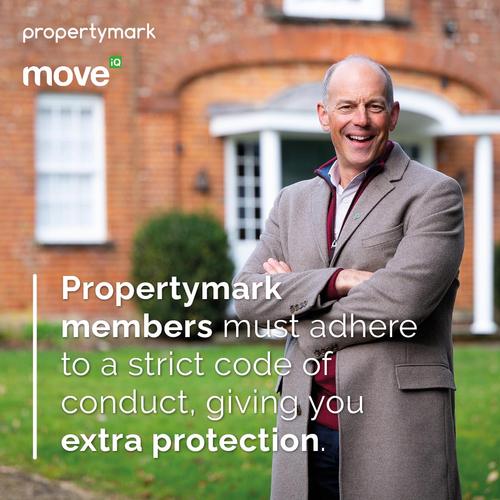Fixed term and periodic tenancies
You can no longer be charged for renewing your tenancy (even if the original contract outlines you can). If you do not renew, your tenancy will become a periodic tenancy and roll on month-to-month. You can continue to rent on this basis giving you greater flexibility when it comes to ending the tenancy.
However, by the same virtue the landlord can serve a Notice to Quit giving you four weeks notice to vacate the property. You could see rent increase on a periodic tenancy too, so unless you plan to end the tenancy soon, it makes sense to renew for another fixed term.
Before you look at properties to rent
Check your finances
Work out how much you can afford each month after regular outgoings and remember you will likely need to pay a deposit too. Deposits can not be above the cost of five weeks’ rent. Don't forget to budget for things like Internet, TV licence and council tax (Students are not required to pay council tax).
List the important stuff
Draw up a list of what you need from your new home so nothing is overlooked. Once you have your list, the letting agent will clarify anything you're unsure of. These suggestions will get you started:
- Is there a parking space?
- Are pets permitted?
- How many bedrooms do you need?
- Are you taking furniture with you?
- What do you need to store?
- Do you need an outdoor space?
- What's the broadband speed like?
Property search
What's nearby?
Check out the local transport links if you have a daily commute and how long your journey will take, especially if you’re relying on public transport. Get a feel for the area and find out where amenities such as supermarkets are located. The letting agent should also be able to answer questions about the local area.
Look for a Propertymark Protected letting agent
Use our Find an Expert search to browse local Propertymark Protected letting agents. They will list properties they have to rent on their website or alternatively you could browse properties via a property portal. Draw up a shortlist of properties you like the look of and make a request to view them.
Viewing properties
Whilst you’re viewing a property, this is your chance to get a feel for the space, condition and safety. Landlords have many legal obligations regarding your safety whilst renting the property. They include gas safety checks, smoke and carbon monoxide alarms, electrical safety and energy efficiency.
Take advantage of our checklist
More information
What rights do tenants have?
UK tenants have a number of rights to cover themselves from unfair evictions, rent increases and more. This guide covers the key rights all tenants should be aware of.
Ban on fees charged to tenants
This guide outlines the important changes under the Tenant Fees Act and Renting Homes (Fees etc.) (Wales) Act 2019 so you can ensure you're paying the correct fees.
How to avoid the pitfalls when renting a property
Did you know how common it is for tenants not to check their inventory or read their contract fully? Phil Spencer talks to Maxine Fothergill on avoiding common rental mistakes.
Private Residential Tenancies in Scotland
This guide explains what a Private Residential Tenancy (PRT) is, how and when you should see a copy of it and what you can expect to find in the agreement.
Joint tenancies explained
When living in shared accommodation, the type of tenancy you have will affect your responsibilities as a tenant and what happens if someone on the tenancy wants to leave.
What to do at the end of your tenancy
If you want to move out of your rented home, you might be wondering what you have to do. This guide will help make sure everything is in order before you pack up.
Signing the tenancy agreement
What is an Assured Shorthold Tenancy (AST)?
Most tenancies are considered an Assured Shorthold Tenancy (AST). Put simply, it is an agreement between a tenant and a landlord for living in a rented property.
Tenancy Deposit Protection (TDP) explained
The Government introduced measures to make sure tenancy deposits are protected whilst they are with the landlord or letting agent. This guide covers everything you need to know.
Right to Rent explained
This guide sets out everything you need to know about how Right to Rent checks are done and what they mean for you as a tenant.
Moving into a rented home
Has an Inventory been completed?
Before you move in, an agent will conduct a professional inventory with you which records the condition of the property and its fixtures and fittings. If you can't attend the inventory then make sure you have a good look around the property as soon as you can and before you move your belongings in.
If you spot anything not highlighted in the inventory, take a photo and report it to the landlord or letting agent—regardless of how minor it is. Ideally ask for the damage to be agreed in writing in return, and keep any communication you've had. Whilst you will be eager to move in, taking the time to check the property will help to ensure that there are no deposit disputes at the end of the tenancy.
Are the smoke and carbon monoxide alarms working?
In England, all alarms and detectors must be tested and working on the first day of the tenancy (as stipulated in the tenancy agreement) by law. This can be done alongside the inventory and confirmed in the report. The legal requirements concerning smoke alarms and carbon monoxide detectors vary across the UK, our landlord safety guide goes into more detail.
Take meter readings
Make a note of the meter readings before you start unpacking so the relevant utility company can give you an accurate bill based on what you've used. You will need to notify them giving the readings for gas, electricity and water along with your move-in date, therefore it helps to know what the readings were on day one.
Answering renters' frequently asked questions
In Episode 7, Maxine Fothergill, ARLA Propertymark President is back talking to Phil Spencer and answering renters’ frequently answered questions. Not surprisingly, the top of the list is all things deposits. How can you protect your deposit? How can you reduce deductions?
Your local ARLA Propertymark Protected letting agent can help

If you're searching for a property to rent, you need an agent that you can trust and rely on—the quality of the agent makes a real difference. Propertymark members have voluntarily chosen to become regulated to showcase their commitment to higher standards. Use the Find an expert search to locate your nearest Propertymark Protected letting agent.












